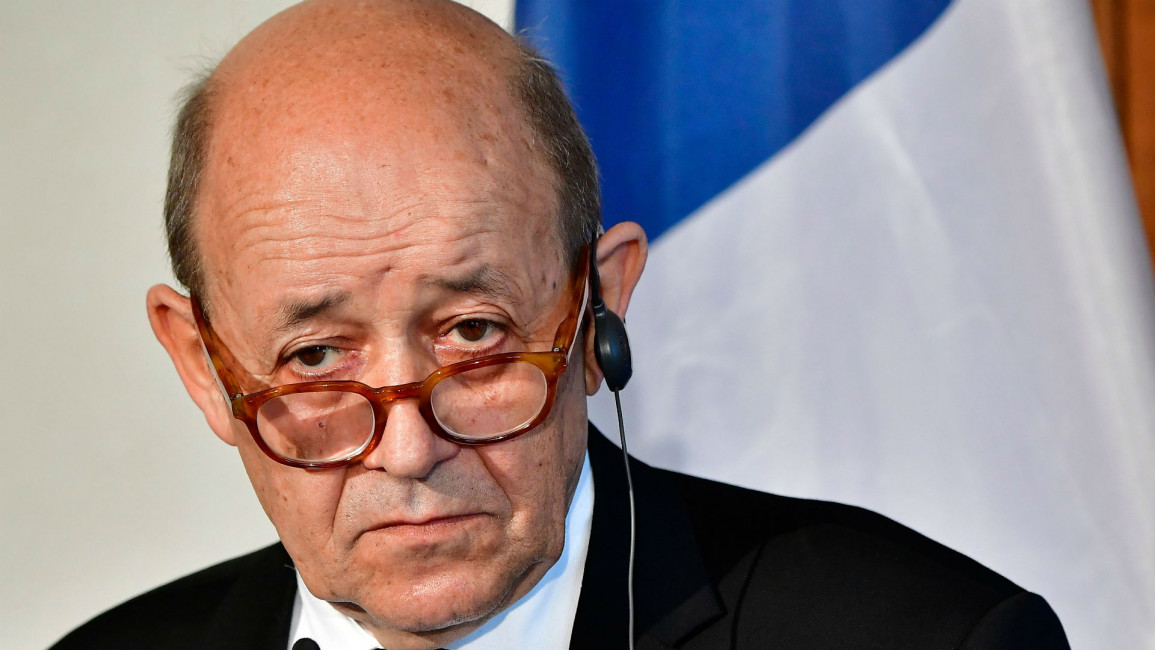Iran's nuclear enrichment 'flirting with red line', says France
Iran's Supreme Leader Ayatollah Khamenei said on Monday that preparations to increase uranium enrichment capacity had been set in motion should the nuclear deal collapse after the United States' decision to withdraw from the landmark accord last month.
Iran has also informed the UN nuclear watchdog of plans to produce feedstock for centrifuges, machines necessary to enrich uranium.
"This initiative is unwelcome. It shows a sort of irritation," Jean-Yves Le Drian said on Europe 1 radio. "It is always dangerous to flirt with the red lines, but the initiative taken ... remains totally within the framework of the Vienna (nuclear) deal.
"If they go to a higher level then, yes, the agreement would be violated, but they need to realise that if they do then they will expose themselves to new sanctions and the Europeans will not remain passive."
At a press conference with visiting Israeli Prime Minister Binyamin Netanyahu yesterday, French president Emmanuel Macron called on "everyone to stabilise the situation and not give into this escalation which would lead to only one thing: conflict".
He added that the Iranian decision to expand its nuclear infrastructure did not constitute grounds for quitting a 2015 deal designed to stop Iran getting a nuclear bomb.
The deal hangs by a thread after the US withdrew last month - a move applauded by Iran's arch-foe Israel - but so far fellow signatories France, Britain, Germany, China, Russia and the EU, have stood firm.
In a rebuke of the US pullout Macron said that Iran's riposte "simply shows that when you decide to unilaterally end an accord it does not encourage the other party to respect it".
Netanyahu, who has vigorously opposed the accord, said he had not attempted to convince Macron to abandon it, but that conversation had mainly revolved around Iran's "regional aggression".The Israeli leader's remarks come as he embarks on an European tour while relations between Israel and the European Union show signs of strain over the killing of 125 Palestinian protesters in Gaza by Israeli forces since March.


![The White House Correspondents' dinner is seeing renewed scrutiny amid Israel's war in Gaza. [Brooke Anderson/The New Arab]](/sites/default/files/styles/image_330x185/public/2024-04/IMG_5497.jpg?h=71976bb4&itok=iSygAqbR)